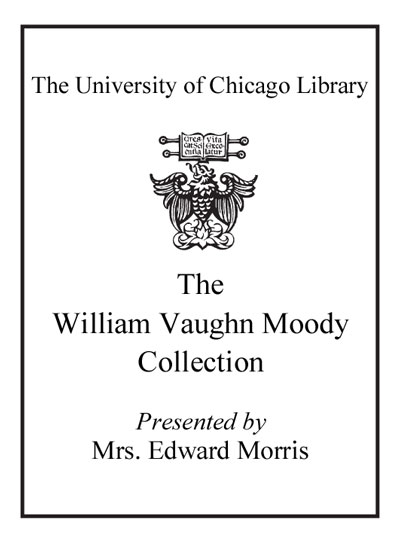Review by Booklist Review
Williams, a law professor, offers her sharp legal and personal perspectives in this collection of essays on a variety of topics from race, politics, and family to personal identity. She recalls a vivacious great-aunt who was indentured as a young girl, later passed for white and married a wealthy white man, and eventually reclaimed her racial identity and settled into a life as the family's grand dame. Williams' participation in Anna Deveare Smith's Institute for Arts and Civic Dialogue provokes her to recognize her hidden talents and longings. The trend toward minorities, most notably Michael Jackson, using plastic surgery prompts observations about standards of beauty. She reveals more of her personal perspective as the mother of an adolescent adopted son, coping with middle age. Williams notes her admiration for Oprah Winfrey for having accomplished with her magazine and her television show the integration of black folks into regular status. Williams has done something similar with her book, which examines race and sex within the context of mundane life and its simple struggles and observations. --Vanessa Bush Copyright 2004 Booklist
From Booklist, Copyright (c) American Library Association. Used with permission.
Review by Publisher's Weekly Review
With a r?sum? that includes degrees from Wellesley and Harvard Law School, a law professorship at Columbia, a column in the Nation and a trio of books, Williams would seem to have enough material to fill several volumes of memoirs. In this thought-provoking, unconventional one, she combines family history with discourses on everything from race, class and slavery's legacy to why she likes O magazine. One chapter, "The Kitchen," begins with an account of buying herself a cappuccino maker, moves to a consideration of homelessness in New York City, continues on to detail her father's heritage, segues to thoughts on why African-Americans give their children unusual names, returns to cappuccino and her sophisticated godmother, makes its way around to trying to cook a turkey and on from there to other food anecdotes and a description of sharing cinnamon toast and steamed milk with her young son. Williams skillfully integrates her probing analyses of social and political issues with riffs on such topics as turning 50 and Michael Jackson's "carving up his face like a paper doily" to form a fluid whole. The book's most affecting parts are the rich, loving stories about Williams's family, from those born into slavery to a grandfather who graduated from Meharry Medical College in 1907. Agent, Marianne Merola. (Nov.) (c) Copyright PWxyz, LLC. All rights reserved
(c) Copyright PWxyz, LLC. All rights reserved
Review by Library Journal Review
Those familiar with Williams (The Alchemy of Race and Rights) for her "Diary of a Mad Lawyer" column in The Nation will find in this memoir the same engaging, witty, and insightful voice, only in book form she has more breathing room. Stamped with her trademark wit, this memoir offers a deeply personal, even domestictake on the world -each chapter here is named after a room ("the boudoir," "the dusty parlor"). Eminently readable, challenging, and always interesting, the writing is as much about race and gender as it is about family, turning 50, contemporary issues such as cloning, and "the little stuff" like writing thank-you notes. A recipient of the MacArthur "genius" award, Williams is a journalist, a law professor at Columbia University, and the author of three other books. Highly recommended for public and academic libraries.-Terren Ilana Wein, Univ. of Chicago (c) Copyright 2010. Library Journals LLC, a wholly owned subsidiary of Media Source, Inc. No redistribution permitted.
(c) Copyright Library Journals LLC, a wholly owned subsidiary of Media Source, Inc. No redistribution permitted.
Review by Kirkus Book Review
Legal scholar and Nation columnist Williams offers a stimulating mix of reminiscences and finely honed arguments as she tries to answer the question a friend once posed: Who is the one person she could never be? Like most of her writings (Seeing a Color-Blind Future, 1998, etc.), this is fundamentally a work of serious intent, even though the illustrative anecdotes are often charming as well as apt. Employing the beguiling image of an open house whose rooms she associates with friends, family, and memories, Williams grapples in "The Boudoir," "The Kitchen," "The Outhouse," and other essays with big questions--race, identity, burgeoning technology--while setting them firmly in the context of her own life. The story of how Great-aunt Mary passed for white when she married a Boston lawyer, for example, seems to Williams an example of how racial and cultural mixing, "nonconformist, embarrassing, and once illegal," are nonetheless inherent aspects of American society. Her experience learning to play the piano in her 50s occasions recollections of the hostile reaction she received when asked to give the Reith Lectures on the BBC. Described as a militant black feminist who hates whites, she thinks such characterizations of black women are still very common on campus and in the law. Williams ponders the importance of O, the Oprah Magazine (maybe "romantic humanitarianism isn't such a bad thing"); delineates her reactions to her son's bout with Kawasaki disease ("I feel it as kind of permanent inner snowstorm"); and elucidates the significance of the names African-Americans gave their children after slavery was abolished, suggesting that some were intended to disguise their origins so that former owners could not find them. In school and in the wider world, she finds, African-Americans constantly battle stereotypes that lead whites to view them as impostors--or the help. Tough and challenging ideas couched in disarming prose. Copyright ©Kirkus Reviews, used with permission.
Copyright (c) Kirkus Reviews, used with permission.
Review by Booklist Review
Review by Publisher's Weekly Review
Review by Library Journal Review
Review by Kirkus Book Review

